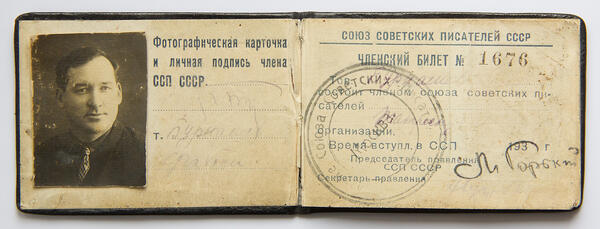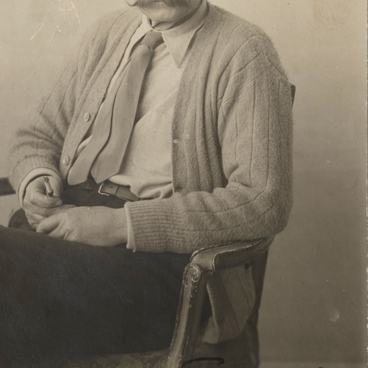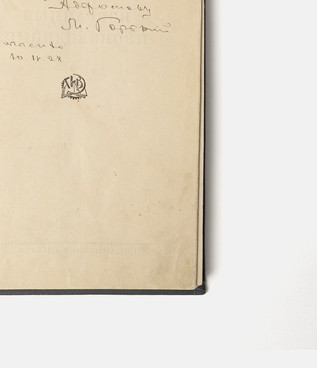Maxim Gorky spent four years of his youth in Kazan, and his love for the city and its people would last throughout his life. He took a great interest in national literature, especially publications by Tatar writers. Since the 1940s, the Alexey Gorky Museum in Kazan (now the Museum of Alexey Gorky and Feodor Chaliapin) has been collecting manuscripts of Tatar writers and information on those of them who had known Gorky personally. This resulted in a collection called “Alexey Gorky and Tatar Literature”. Some of the materials were later used at the “Decade Exhibition of Tatar Literature” in Moscow.
Among Maxim Gorky’s authentic autographs, the museum also has his signature on a Union of Soviet Writers membership card of Fatkhi Burnash, a Tatar playwright, poet, prose writer, publicist, translator, and theater activist. His real name was Fatkhi Zakirovich Burnashev, he was born in 1898 and graduated from Mokhammadiya Madrasah — the oldest Islamic educational institution in Kazan.
Fatkhi Burnash was over 20 years old when his career began to flourish: he translated the play by Sergey Naydyonov’s “Vanyushin’s Children” into Tatar for the theater troupe “Sayyar” and wrote his first plays — “Destiny”, “The Tramp” and “The Mad Girl”. Fatkhi Burnash was the organizer and editor of several Tatar newspapers and magazines, including the “Chayan” (Scorpion) magazine.
Burnash was the director of the Tatar Academic Theater; he also worked at Tatizdat (Tatar Publishing House) and in the opera studio at the Tatar Opera and Ballet Theater. Fatkhi Burnash wrote over 20 plays, and his works enriched Tatar literature and theater. His later works demonstrate the leap that Tatar literature made from enlightenment to romanticism and critical realism in the first third of the 20th century.
The First All-Tatarstan Congress of Soviet Writers was held in Kazan on July 25–29, 1934. Two months prior, Fatkhi Burnash was accepted to the Union of Soviet Writers of the Tatar Republic, as evidenced by the document signed by Maxim Gorky. The document is displayed in the museum hall “Episodes from a Great Friendship: Gorky and Tatarstan”.
Fatkhi Burnash was arrested on August 24, 1940, and shot on August 1, 1942, in Kuybyshev following a political charge against him. He was rehabilitated posthumously in 1957.



